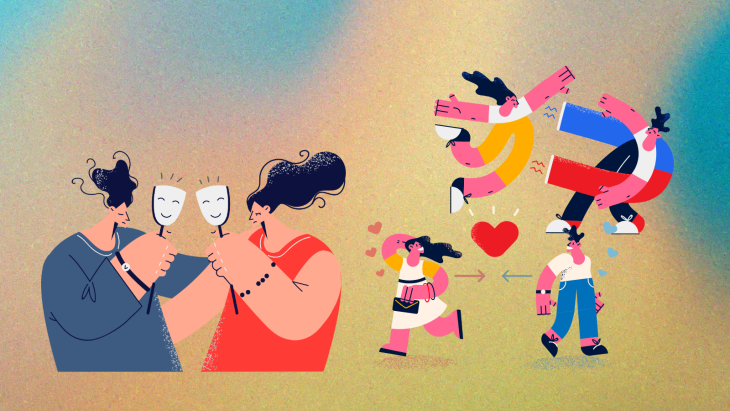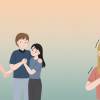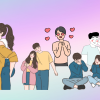Recent Posts
- The Anxious Generation. What is causing Gen Z's mental health crisis?
- Do you have to play games to make relationships work?
- Can a Therapist Find love? The Dating Life of a Therapist.
- Can a Therapist Benefit from Therapy?
- My kid's schedule is fully packed with after-school activities everyday. How much is too much?
Most Popular
It might sound crazy, but I stayed in a 10-year relationship even though I was not happy! What keeps people in love-deprived relationships?

Have you heard a close friend complain to you about their romantic partner even to the point that they are plotting ways to end their relationship? But you wonder why after months and months of the same grumble they are still in the relationship. What holds back people in chronically love-deprived relationships from breaking free from it?
One of the most used descriptions about love says that “Love is patient and kind; love does not envy or boast; it is not arrogant or rude. It does not insist on its own way; it is not irritable or resentful; it does not rejoice at wrongdoing, but rejoices with the truth. Love bears all things, believes all things, hopes all things, endures all things.”
At one point, we may find ourselves in relationships where we persist in staying despite the lack of patience and kindness. Resentment may already pervade. What do psychology resources say about why we tend to stay anyway?
1. For the sake of the other person.Intuitively, we would say that we stay because we are afraid of losing, or we are insecure without them. However, a study has found quite the opposite. When we remember the love and satisfaction we once had, and the efforts of this loved one in the past, we hesitate leaving because we still want to help them improve or we don’t want to hurt them. We remain in an unsatisfying relationship because we see how much the other person needs the relationship.
2. Will someone better come along to love me? A loveless relationship may become like an emotional prison. Getting out of it starts with believing that we are worth the effort and someone else would be willing to put in the effort to love us. The symptoms of low self-worth are seen especially in people who grew up in homes where a loving relationship was not modeled often.
3. Can I be alone? Especially in long-term relationships, we may feel that leaving and being alone for the first time in a long time is something too scary. Our perspective becomes too narrow to the point that we don’t see other support networks to support us at such a hard time. It takes a group of genuine friends and supportive family to prop us up while we recover from a breakup.
4. Look away from the pain, but look forward to the joy. At the cost of our emotional and mental wellbeing, we sometimes choose to look away from the pain of a loveless relationship for the joy that we anticipate. We are willing to pay the price of chronic pain rather than to give up the fleeting pleasures of the relationship.
Our perception is further skewed when we believe that “normal” relationships should be hard in order to be worth it. In truth, in order for our wellbeing to prosper, we should be in a relationship that increases our value, not decreases it, promotes our sense of self, not crush it. It should be a source of security and stability.
- Looking at our partner through rose-colored lenses. We see our partner’s potential rather than the truth of who they are for quite a while. This is often a mark of infatuation. We are blinded by the good in them that we fail to see red flags in the relationship. And if ever we finally see them, we hold out hope that things will change. Our partner will change. But eventually, we fall into hopelessness and dissatisfaction.
- Who am I without the relationship? There is social approval for people who are in relationships, especially ones that appear perfect. Social pressures, our upbringing or societal culture might tell us that our sense of worth is measured by our ability to be in and retain a romantic relationship.
However, just as our job, our hobbies, or our family does not define our identity, our relationship is also not the anchor of our identity. If we define ourselves based on our romantic relationship, there is a tendency that we lose ourselves.
- I am the glue that holds this relationship together.
- Will my finances be able to take it? Breaking away from an unhappy relationship may also mean weighing the benefits and consequences of sacrificing some form of economic comfort against having more resources and living comfortably.
For these reasons, we may stay in relationships despite the avalanche of negative feelings. But with self-reflection, and possibly professional help and guidance from mental health professionals and family therapists, we can take steps to prioritize our emotional wellbeing.
Get the latest updates on the available healthcare and mental health professional jobs across the US and connect with the opportunity that will set up your career to success!








Comments